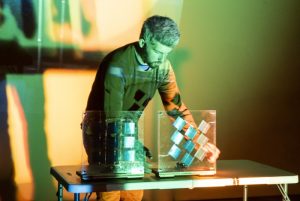Theodore Berger , a biomedical engineer at the University of Southern California (Los Angeles), wants to understand nerve cells’ language to build a computer chip that might one day bolster the brain’s memory banks.
This brain prosthesis is a kind of implantable hippocampus (the hippocampus is a part of the brain involved in the formation of long-term memory.) The most immediate beneficiaries would be victims of stroke, Alzheimer’s and other ailments. Others might one day use such a chip to bone up on French, quantum mechanics or an F-16 flight maneuver.
![99993488F1thumb[1].jpg](http://www.we-make-money-not-art.com/yyy/99993488F1thumb%5B1%5D.jpg)
Click on the picture of the Hippocampus replacement to see it enlarged.
Berger has already devised computer programs that replicate the cells’ behavior, and has built chips to run them. Earlier this year he successfully tested the system on tissue from rats’ brains (kept alive in cerebrospinal fluid).
He hopes to test a chip in live rats within three years, then monkeys trained to carry out memory tasks. The researchers will stop part of the animal’s hippocampus working and bypass it with the chip. “The real proof will be if the animal’s behaviour changes or is maintained.” Then of course, it will be the turn of humans.
As a journalist in New Scientist writes it is unclear whether we have any control over what we remember. If we do, would brain implants of the future force some people to remember things they would rather forget?
Via Newsweek.
A last year article in The Economist has more details.







